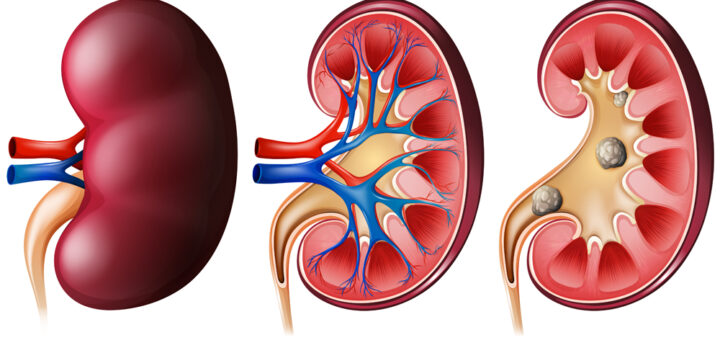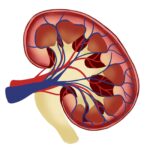Chronic kidney disease (CKD) is a progressive condition that significantly impacts individuals with type 2 diabetes mellitus (T2DM). As a major complication of diabetes, CKD necessitates comprehensive management to mitigate its debilitating effects. This article delves into the relationship between CKD and T2DM, addressing its pathophysiology, risk factors, preventive measures, and treatment options.

Pathophysiology of CKD in Type 2 Diabetes
CKD in T2DM stems from prolonged hyperglycemia and associated metabolic disturbances. High blood glucose levels damage the glomeruli, the kidney’s filtering units, leading to albuminuria (protein in the urine) and reduced glomerular filtration rate (GFR). Persistent damage results in progressive renal scarring and loss of kidney function.
Key Mechanisms Involved:
- Hyperglycemia-Induced Damage: Excess glucose promotes the formation of advanced glycation end products (AGEs), contributing to glomerular damage.
- Hypertension: High blood pressure exacerbates renal damage, accelerating CKD progression.
- Inflammation and Oxidative Stress: Persistent inflammation and oxidative stress further damage renal tissues.
Risk Factors for CKD in Type 2 Diabetes
Several factors increase the likelihood of CKD in individuals with T2DM:
- Duration of Diabetes: Longer diabetes duration correlates with higher CKD risk.
- Poor Glycemic Control: Elevated HbA1c levels are strongly linked to renal complications.
- Hypertension: Uncontrolled blood pressure is a significant risk factor.
- Obesity: Excess body weight increases glomerular pressure and damage.
- Genetic Predisposition: Family history of kidney disease heightens risk.
Signs and Symptoms
CKD often progresses silently in its early stages. Common symptoms in advanced stages include:
- Fatigue and weakness
- Swelling in legs, ankles, or feet
- Shortness of breath
- Persistent itching
- Nausea and vomiting
- Foamy or dark-colored urine
Diagnosing CKD in Diabetic Patients
Early detection is critical for managing CKD in T2DM. Diagnostic approaches include:
- Blood Tests: Measuring serum creatinine and calculating estimated GFR (eGFR).
- Urine Tests: Checking for albuminuria to assess kidney damage.
- Imaging Studies: Ultrasound or CT scans to evaluate structural abnormalities.
Prevention Strategies
Preventing CKD in individuals with type 2 diabetes requires proactive measures:
- Optimal Glycemic Control: Maintaining HbA1c levels below 7% reduces CKD risk.
- Blood Pressure Management: Targeting <130/80 mmHg to minimize renal strain.
- Healthy Lifestyle: A balanced diet, regular exercise, and weight management are crucial.
- Smoking Cessation: Smoking accelerates kidney damage and should be avoided.
- Use of ACE Inhibitors or ARBs: These medications protect renal function by reducing intraglomerular pressure.
Treatment Approaches
Management of CKD in T2DM involves slowing disease progression and addressing complications:
Pharmacological Interventions
- Sodium-Glucose Cotransporter-2 (SGLT2) Inhibitors: Shown to reduce CKD progression in diabetics.
- Renin-Angiotensin System (RAS) Blockers: Include ACE inhibitors and ARBs for renal protection.
- Diuretics: Used to manage fluid overload.
- Erythropoiesis-Stimulating Agents (ESAs): Treat anemia associated with CKD.
Non-Pharmacological Interventions
- Dietary Modifications: Limiting sodium, potassium, and phosphorus intake.
- Regular Monitoring: Periodic assessment of kidney function and albuminuria.
- Dialysis or Transplantation: Options for end-stage renal disease (ESRD).

